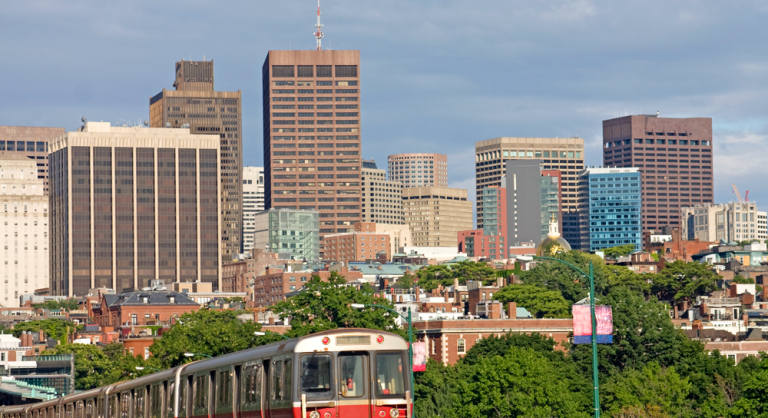A World Class City Requires a World Class Transportation System
Paul C. Bauer – Economic development drives a vibrant City of Boston. You know what or who doesn’t drive this City? Most of us, after circling Boston for an hour looking for a parking space. Whatever the method of commute, this winter’s storms have created a trying environment for all of us who try to get around Boston. Like a career change after a personal tragedy, a crisis may not be the best time to make major infrastructure decisions. At the same time, crisis shines a light on our flaws and creates an opportunity for action that can make a real difference to the future of our beloved City.
Our flaws are broad and cross many aspects of our infrastructure: reduced parking spaces due to new development; mass transit equipment and track failures; and limited road capacity to handle a bump in demand when the MBTA is out of service. Not to mention our good fortune that our badly worn bridges and roads have not been front page news during these storms.
Governor Baker has announced a Special Panel “to perform an in-depth diagnostic review of the MBTA’s core functions.” Although task forces have trod this ground before, this is a good thing as it will move the administration to own – if not the problem – at least the solution.
As far as MBTA evaluations go, it is hard to do better than David D’Alessandro’s Report of Nov. 1, 2009. It is not a long read and perusing the report is vital to gain an understanding of how we got here and what it will take to get us out of the hole and moving towards a functioning, economic growth-driving, transit system.
The resignation of the MBTA General Manager is unfortunate as it leaves us without a vocal, credible T insider to advocate for making the hard choices necessary to improve the T. The Administration should undertake an intensive search for the new General Manager as quickly as possible so that we can have an agent of change in place to use the momentum from our winter of discontent to push an agenda of reality forward. Perhaps then, having new management can work to the advantage of accomplishing needed change.
People tie the Olympics together with the transit system. As in, how can we host the Olympics if we don’t have an adequate transit system? I submit that this is the wrong question. The real questions are: What do we want our Boston to be through the remainder of this century? What will make us (or keep us) the world class city we profess to be? It will not be the infrastructure we have today. Fixing T motors and switches so they do not freeze will not make a dent in achieving our long term goals as a community. Band aids, even large ones, will not take us to the future we should envision.
Any tax is the third rail of politics, but we need a dedicated infrastructure revenue source. And yes, we need to reform our government to make sure these precious financial resources are not squandered. Voters in November repealed gas tax indexing. A cynic could conclude that the general populace has disapproved funding for transportation projects. More likely, our citizens exhibited a long standing disapproval of taxes that are not approved by the people or their representatives.
So perhaps there is an opportunity for a gas tax dedicated to transportation as long as it is approved by our legislators. The business community by and large supported upholding indexing and it seems appropriate to take another look at a dedicated gas tax to help move our transportation system forward.
Massachusetts has a window of opportunity caused by these historic storms to put ourselves on track for sustaining and, yes, improving world class status for the City of Boston and our region. We should confidently approach this challenge keeping in mind not just how we can make a survivable commute over the next five years, but how we and future generations will move about and settle our great City over the next fifty years.
Categorized: Uncategorized



